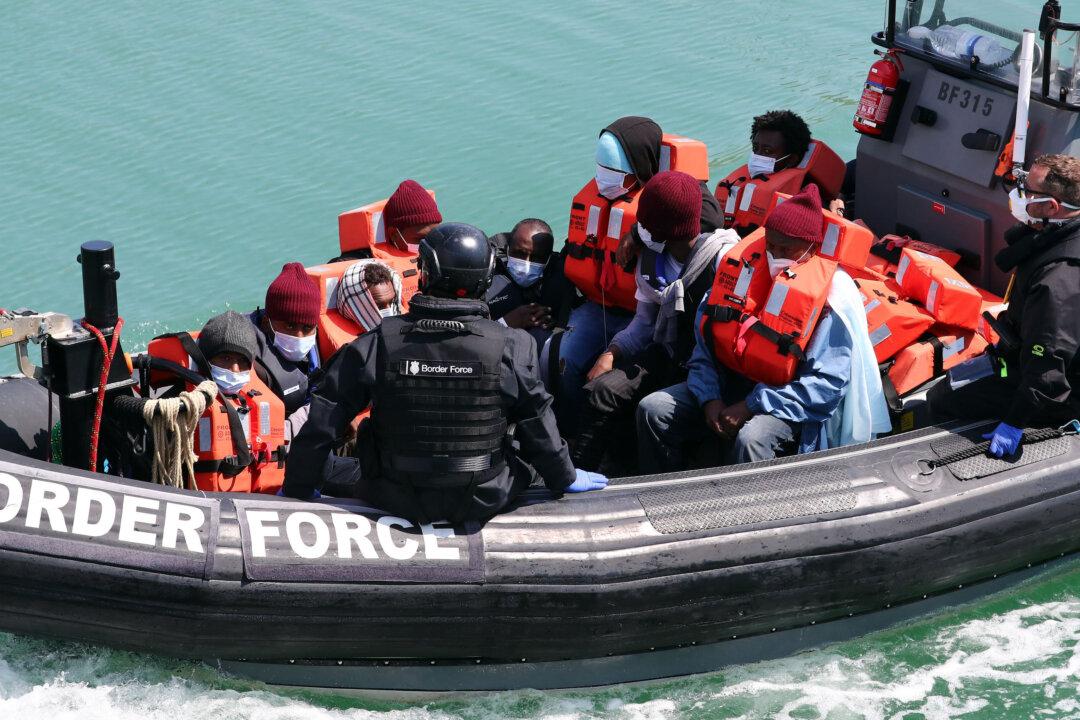Illegal immigrants seeking to make their way to the UK on small boats, and their people-smuggling enablers, will face heavier prison sentences in a bid to prevent “asylum shopping,” the Home Office has announced.
The stricter enforcements form part of the Nationality and Borders Bill, which is due for its first reading in the House of Commons on Tuesday, as part of Home Secretary Priti Patel’s pledge to “fix” the UK’s “broken asylum system.”




